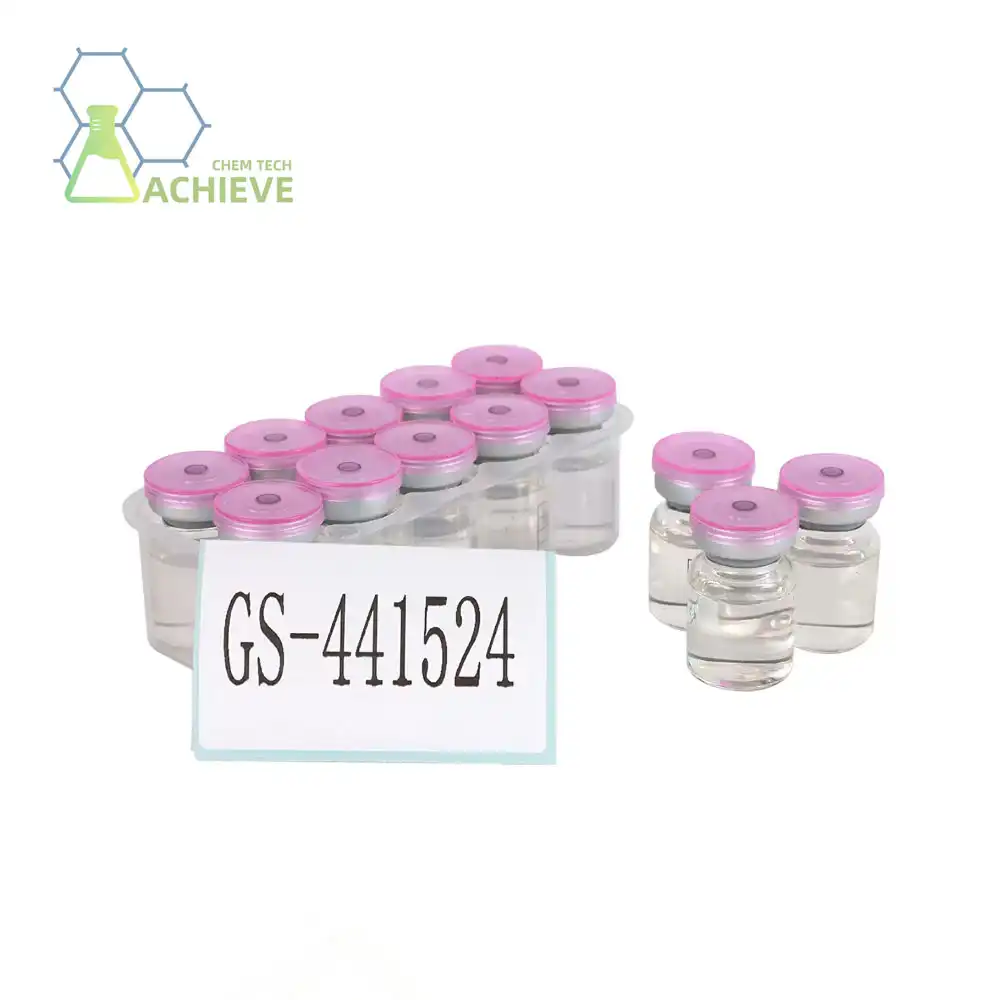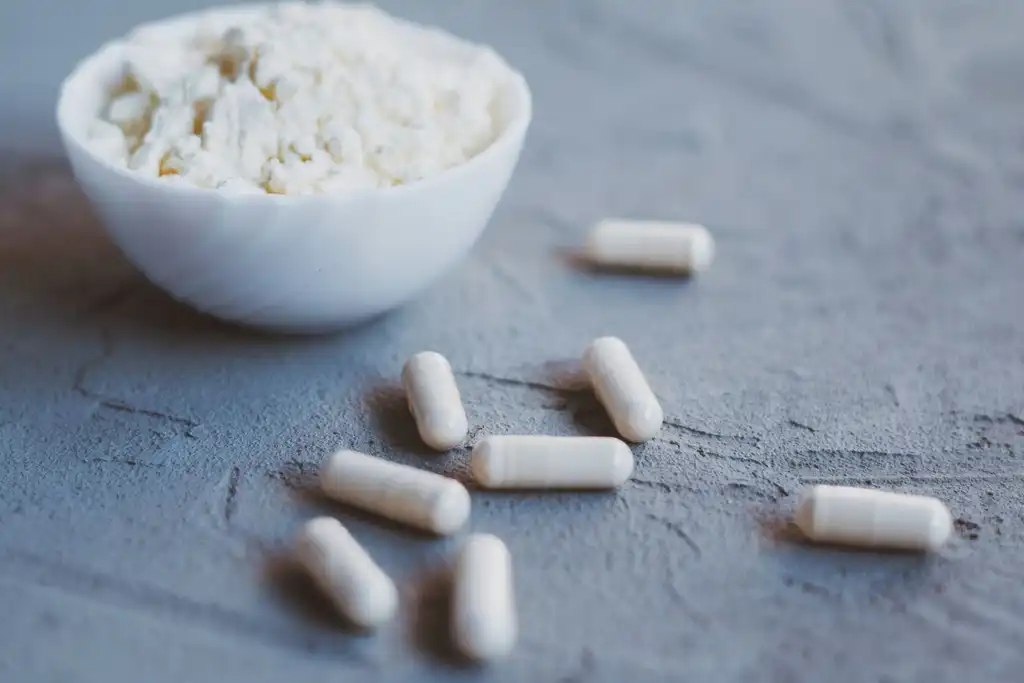Can you crush the GS-441524 tablets?
GS 441524 tablets have gained significant attention in the veterinary world for their potential in treating feline infectious peritonitis (FIP). As cat owners and veterinarians explore this treatment option, a common question arises: Can you crush the GS 441524 tablets? This article delves into the intricacies of administering GS-441524, examining whether crushing the tablets is a viable option and exploring alternatives for cats that struggle with pill ingestion.
Product: https://www.bloomtechz.com/oem-odm/tablet/gs-441524-tablets.h
|
|
|
|
Does crushing GS-441524 tablets alter their efficacy?
The question of crushing antiviral GS 441524 tablets is not straightforward. While some medications can be safely crushed without affecting their efficacy, others may lose their potency or have altered absorption rates when their physical form is changed. In the case of GS-441524, there is limited research specifically addressing the impact of crushing the tablets.
However, based on general pharmacological principles, it's crucial to consider several factors:
- Immediate vs. controlled release: If GS-441524 tablets are designed for controlled release, crushing them could potentially alter the intended release profile, leading to a rapid absorption of the entire dose.
- Chemical stability: Some drugs may become unstable when exposed to air or moisture after crushing, potentially reducing their effectiveness.
- Absorption kinetics: Crushing tablets can sometimes change how quickly and completely a drug is absorbed in the gastrointestinal tract.
Given these considerations, it's generally advisable to administer GS-441524 tablets whole, as intended by the manufacturer. This ensures that the drug's formulation remains intact, potentially optimizing its therapeutic effects.
Mixing crushed GS-441524 with water or food: Pros and cons
Despite the general recommendation to avoid crushing, some pet owners may find themselves in situations where mixing crushed GS-441524 with water or food seems like the only viable option. Let's examine the potential pros and cons of this approach:
Pros:
- Improved palatability: Some cats may be more willing to consume the medication when it's mixed with food they enjoy.
- Ease of administration: For cats that absolutely refuse to swallow pills, mixing with food or water can make the process less stressful for both the cat and the owner.
- Reduced risk of choking: Crushing the tablet eliminates the risk of the cat choking on a whole pill.
Cons:
- Potential loss of efficacy: As mentioned earlier, crushing the tablet may alter its pharmacokinetics, potentially reducing its effectiveness.
- Inconsistent dosing: If the cat doesn't consume all of the food or water mixture, it may not receive the full intended dose.
- Taste alterations: GS-441524 may have a bitter taste that becomes more pronounced when crushed, potentially making the food unpalatable to the cat.
- Drug interactions: Mixing with certain foods or liquids could potentially interact with the medication, affecting its absorption or efficacy.
If you're considering mixing crushed GS-441524 with food or water, it's paramount to consult with a veterinarian first. They can provide guidance based on your cat's specific situation and the most current research on GS-441524 administration.
Alternatives to crushing for cats that refuse pills
For cat owners struggling with pill administration, there are several alternatives to consider before resorting to crushing GS 441524 tablets:
|
|
|
|
1. Pill pockets or treats
Specially designed treats with a hollow center can be used to hide the tablet. Many cats will eagerly consume these treats without realizing they're taking medication.
2. Pill guns or pill poppers
These devices help place the pill at the back of the cat's throat, making it easier for them to swallow. With practice, this method can be quick and stress-free.
3. Compounded formulations
In some cases, it may be possible to have GS-441524 compounded into a liquid or transdermal gel form. This would need to be done by a specialized pharmacy under veterinary guidance.
4. Behavior modification techniques
With patience and positive reinforcement, some cats can be trained to accept pills more willingly. This might involve associating pill time with rewards or using clicker training.
5. Professional administration
If all else fails, consider having a veterinary professional administer the medication. They have extensive experience in handling difficult cases and can ensure proper dosing.
It's worth noting that the availability of these alternatives may vary depending on your location and the specific formulation of GS-441524 you're using. Always consult with your veterinarian to determine the most appropriate method for your cat.
Considerations for long-term treatment
Given that GS-441524 treatment for FIP typically involves a prolonged course, it's crucial to find a sustainable administration method. What works in the short term may become challenging over weeks or months. This is where a multifaceted approach, combining different techniques and potentially rotating between methods, can be beneficial.
The importance of consistent dosing
Regardless of the administration method chosen, maintaining consistent dosing is paramount when using GS 441524 order for FIP treatment. Skipped doses or inconsistent administration can potentially lead to treatment failure or the development of drug resistance.
Monitoring for side effects
While exploring different administration methods, it's essential to monitor your cat closely for any signs of side effects or changes in their condition. This includes watching for:
- Changes in appetite or water intake
- Alterations in behavior or energy levels
- Gastrointestinal symptoms like vomiting or diarrhea
- Any worsening of FIP symptoms
Prompt reporting of any concerns to your veterinarian can help ensure the treatment remains effective and safe for your cat.
The role of supportive care
While the focus is often on administering GS-441524, it's important not to overlook the role of supportive care in managing FIP. This may include:
- Nutritional support to maintain body condition
- Fluid therapy to manage dehydration
- Management of concurrent symptoms or complications
- Regular monitoring of blood work and other diagnostic tests
A comprehensive approach that combines effective GS-441524 administration with appropriate supportive care can optimize the chances of a successful outcome in FIP treatment.
Future developments in GS-441524 formulations
As research into FIP treatment continues, there's hope for the development of more user-friendly formulations of GS-441524. This could potentially include extended-release tablets, flavored liquids, or even long-acting injectable forms. Staying informed about these developments can help cat owners and veterinarians make the best decisions for FIP treatment in the future.
The importance of veterinary guidance
While it's natural for cat owners to seek information and explore options for administering GS-441524, it cannot be overstated how crucial it is to work closely with a veterinarian throughout the treatment process. They can provide:
- Personalized advice based on your cat's specific condition and needs
- Up-to-date information on GS-441524 research and best practices
- Monitoring and adjustments to the treatment plan as needed
- Support in managing any challenges or complications that arise
By maintaining open communication with your veterinary team, you can ensure that your cat receives the most effective and safe treatment possible.
Conclusion
While the question "Can you crush GS-441524 tablets?" may seem straightforward, the answer involves careful consideration of various factors. The general recommendation is to administer the tablets whole to maintain their intended efficacy. However, for cats that struggle with pill ingestion, there are several alternatives to explore before considering crushing the medication.
Ultimately, the goal is to find a method that ensures consistent and effective administration of GS-441524 while minimizing stress for both the cat and the owner. This often requires a personalized approach, developed in close consultation with a veterinarian who understands both the complexities of FIP treatment and the individual needs of your cat.
As research into FIP treatment continues to evolve, staying informed and maintaining open communication with your veterinary team will be key to navigating the challenges of GS-441524 administration and optimizing your cat's chances for a successful outcome.
For pharmaceutical companies and research institutions working on antiviral treatments like GS 441524 tablets, BLOOM TECH offers high-quality chemical products and custom synthesis services. With our state-of-the-art GMP-certified production facilities and expertise in various reaction and purification techniques, we can support your research and development efforts. Whether you need bulk quantities of specific chemicals or assistance with complex synthesis processes, our team is ready to help. To learn more about our capabilities and how we can support your projects, please contact us at Sales@bloomtechz.com. Let's work together to advance the field of antiviral treatments and improve animal health outcomes.
References
1. Pedersen, N. C. (2019). Black market production and sale of GS-441524 and GC376. Journal of Feline Medicine and Surgery, 21(6), 487-488.
2. Murphy, B. G., Perron, M., Murakami, E., Bauer, K., Park, Y., Eckstrand, C., ... & Pedersen, N. C. (2018). The nucleoside analog GS-441524 strongly inhibits feline infectious peritonitis (FIP) virus in tissue culture and experimental cat infection studies. Veterinary microbiology, 219, 226-233.
3. Dickinson, P. J., Bannasch, M., Thomasy, S. M., Murthy, V. D., Vernau, K. M., Liepnieks, M., ... & Pedersen, N. C. (2020). Antiviral treatment using the adenosine nucleoside analogue GS-441524 in cats with clinically diagnosed neurological feline infectious peritonitis. Journal of veterinary internal medicine, 34(4), 1587-1593.
4. Kim, Y., Liu, H., Galasiti Kankanamalage, A. C., Weerasekara, S., Hua, D. H., Groutas, W. C., ... & Pedersen, N. C. (2016). Reversal of the progression of fatal coronavirus infection in cats by a broad-spectrum coronavirus protease inhibitor. PLoS pathogens, 12(3), e1005531.

Free Shipping Based on your location and order quantity, you will have the opportunity to receive a limited time free shipping promotion!

BLOOMTECHZ









